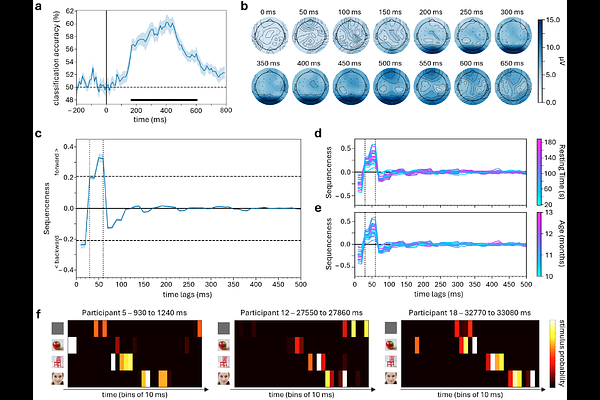Replay of episodic experience in human infants

Replay of episodic experience in human infants
Postzich, C.; Finnemann, J.; Skeide, M. A.
AbstractSequentially structured and temporally compressed reactivation of episodes of experience plays a key role for memory and learning in the mature mammalian brain. This type of neural coding, known as replay, could also drive the enormous progress in sequential learning seen in human early life. Rodent models, however, suggest that replay emerges slowly and still refines in the juvenile phase. To test whether this prediction holds in humans, we introduced a novel fast event-related stimulation paradigm for infants undergoing non-invasive electroencephalography. Leveraging time-resolved decoding techniques we discovered replay of visual objects already in infants as young as 10 months. Reactivation responses revealed a forward sequential structure and temporal compression of the learnt sequence by a factor of 6 to 7. These results demonstrate that human replay develops considerably earlier than in rodents. Our insights stimulate future research exploring how replay contributes to the development of fundamental human cognitive capacities including language processing and action planning.